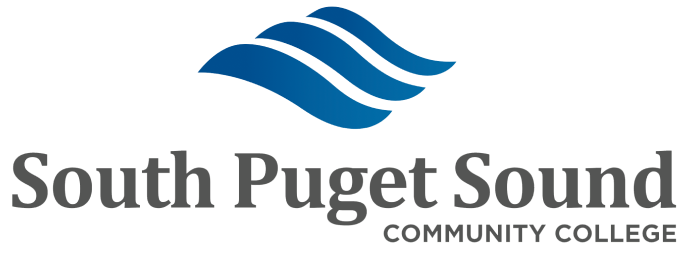South Puget Sound Community College intends to comply with the relevant laws and policies pertaining to the procurement of accessible technology and related goods and services.
Examples of technology that is not accessible include videos without closed captioning, web applications and websites that cannot be read by use of assistive technology, or technology hardware or furniture that cannot be accessed by those with mobility disabilities.
The following procedures are established to meet the requirement for implementing the Accessible Technology Policy as adopted by the State Board for Community and Technical Colleges on March 24, 2016, as well as the Washington State OCIO Policy 188, adopted August 11, 2016.
Purchasing Technology
All technology products or services purchased or utilized by the College will meet minimum accessibility requirements as per Federal and State regulations and policies. This includes products that are developed internally by College staff.
- Ask bidders on technology products / projects to provide information about the accessibility of their products:
- Bidder must describe how their IT products or services are accessible.
- If there are issues that prevent bidder's product or service from meeting requirements, bidder must describe efforts underway to address issues, including anticipated timelines for completion.
- Validate bidder information and evaluate products for accessibility:
- Vendors and developers will be required to submit a Voluntary Product Accessibility Template (VPAT), documenting the accessibility of a product in accordance with Section 508 Standards of the Rehabilitation Act of 1973.
- Products must also meet Level AA compliance with Web Content Accessibility Guidelines (WCAG) 2.1, in accordance with the Washington State Office of the Chief Information Officer Policy 188
- VPATs can be informative, but they have limitations because they are self-reported by vendors and, therefore, should be independently verified and not accepted at face value.
- Few technology products are fully accessible; however, vendors should, at a minimum, be willing to make a commitment to address accessibility problems.
- Include accessibility assurances in contracts with vendors.
If the best product for the College's needs is one that fails to fully meet accessibility requirements, vendors will be asked to make a commitment to improving accessibility over a specified timeline.
The procurement contract will include language that specifically documents the agreement between vendor and procurer as to how satisfactory progress on accessibility will be measured.
Even if the product is currently accessible, the contract should include language that assures continued accessibility as the product is updated.
Review of Product Accessibility
The VPAT and WCAG 2.1 review will be coordinated by SPSCC IT Services department to verify compliance with accessibility standards. IT Services will inform the requestor within two weeks of receiving a VPAT if the product is in compliance with accessibility regulations and standards.
Exemptions:
When a VPAT or WCAG 2.1 AA verification demonstrates a lack of accessibility, an exemption may be requested by the department or employee initiating the technology request. All exemption waiver requests must be approved by the Washington State Office of the Chief Information Officer per Policy 188.
A written request for exemption may be made to the IT Accessibility Coordinator following review and endorsement by the appropriate dean or director. Exemption requests should detail what specific accessibility requirements cannot be met by the technology product. The request should also detail why attempting to meet accessibility requirements would cause an undue hardship to college resources, employees, and / or students.
Requests should indicate other options or vendors considered and why they were not selected, along with how equivalent access will be granted to those with disabilities.
The final decision on exemptions will be made by the appropriate Vice President, who, in consultation with Access Services and IT Services will evaluate the request based on the following criteria:
- What solutions are currently in place?
- Will the technology improve or hinder accessibility?
- What constituent groups will this service affect?
- Can accommodations be made to overcome barriers to accessibility or to provide equivalent access?
If an exemption is granted, the IT Accessibility Coordinator will submit a waiver request to the WA OCIO per policy 103 Technology Policy & Standards Waiver Request.
The coordinator will also notify the requestor of the final decision within 30 days of receiving the waiver from the WA OCIO.
IT Services department will maintain documentation of all approved exemptions.
